Y7&8 (Grade 6&7) Maths Inquiries
Home › Forums › Inquiry and resource design › Y7&8 (Grade 6&7) Maths Inquiries
- This topic has 3 replies, 3 voices, and was last updated 2 years, 4 months ago by
 MaryRoseG.
MaryRoseG.
-
AuthorPosts
-
24th May 2023 at 9:25 pm #80535
The summer term in UK schools is often a rich time for building inquiry relationships with new departments. With public exam classes gone teachers have a bit more planning time, and there is incentive to ‘do something a bit different’ after internal exams. This can be a double edged sword as there is a danger that inquiry is seen as something to play with in the dead time after exams rather than a powerful tool for meaningful content delivery. However, it can be a good time to forge new relationships and to demonstrate the power of inquiry as an educational approach, which can then feed through into other units throughout the year.
I was delighted to be approached by one of our maths teachers (who is very open to inquiry more broadly, and was enthusiastically involved in the Y6 Signature Work this year) with some ideas for Y7&8 inquiries for after exams. Darryl did some work with her last summer, which was ripe for development and expansion. He’d done a great job, but was very stretched in terms of time (I was still mostly a Science Technician then) and had needed to put something together on relatively short notice. He had used it as an opportunity to expand our collection, so we have some really good maths books.
The teacher was interested in:
- something to enthuse her bottom set Y7, help them to connect maths to the wider world and possibly to make use of our developing school nature trail.
- for Year 8 she wanted to stretch her top set to choose famous mathematicians to investigate.
Usually with inquiry design I would start with the required subject content and work out from there, however in this case the brief was more about connecting to real world maths than any particular content. The timescale was was six 70-minute lessons spread over two weeks for both groups, and the teacher was very keen to incorporate some inquiry skills teaching into the unit.
- For the Y7, we decided to focus on the Fibonacci Sequence (and the Golden Ratio and Golden Spiral), looking at the sequence in nature both outside on the nature trail and through measuring student’s bodies. The focus question will be “Can maths help me get better at art?” and we will challenge students to show (on a poster) how careful observation of maths in nature can improve their drawing skills.
- For Y8, we chose to look at the international nature of maths with the question “Is maths a universal language?”. We wanted to look at counting systems, numbers in different languages and mathematicians from all over the world.
The teacher was excited by the draft plans I had produced and suggested we share them in the departmental meeting after school yesterday. This is what I shared:
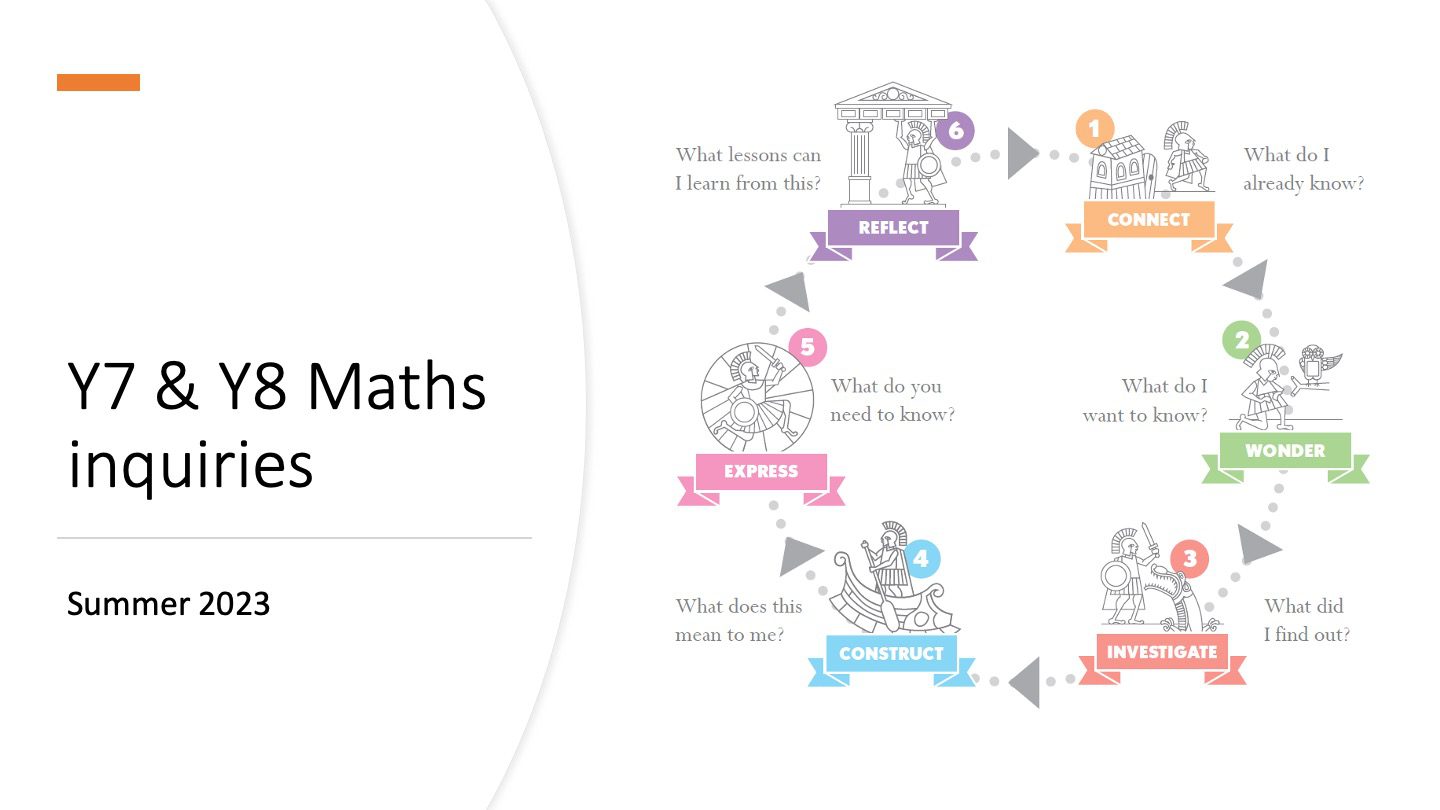
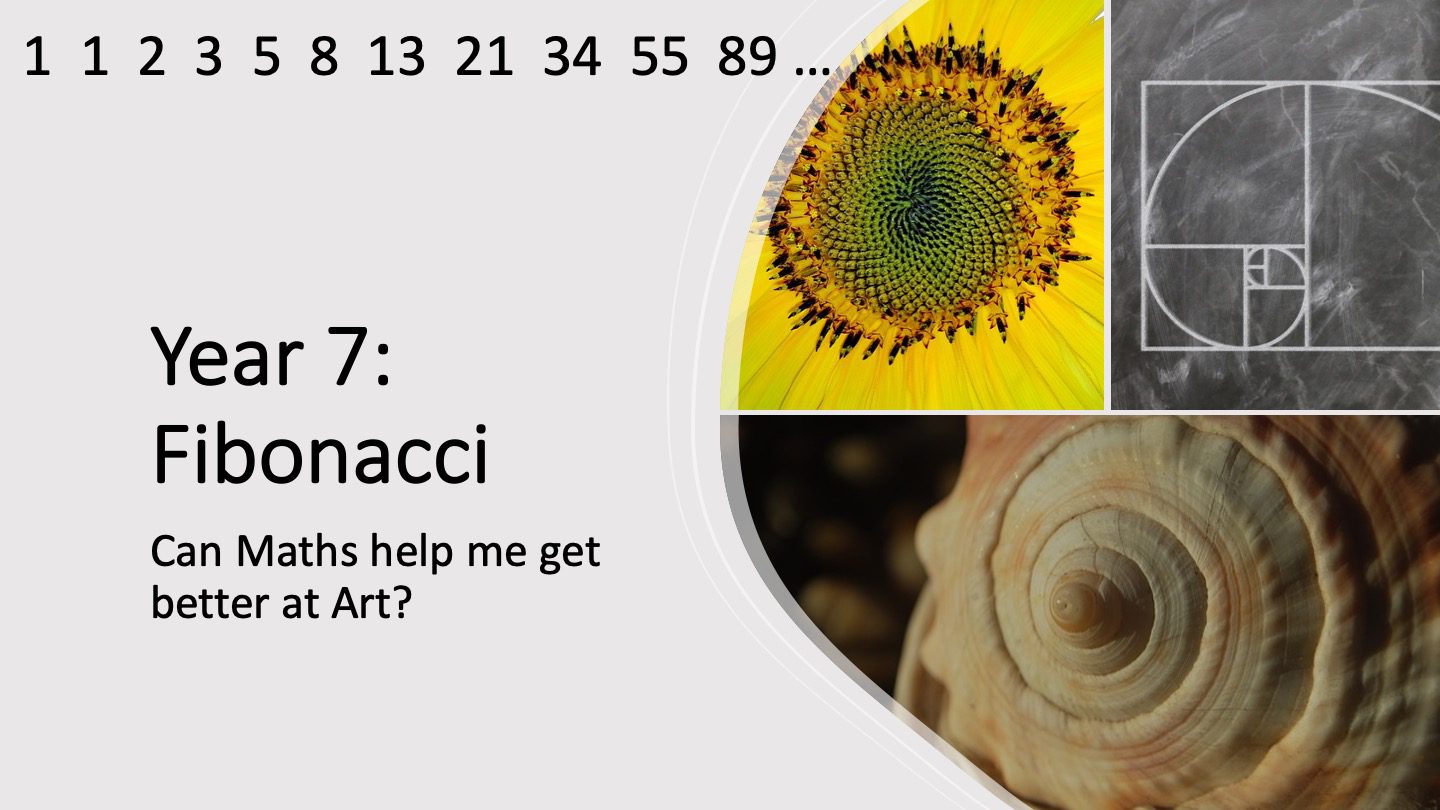
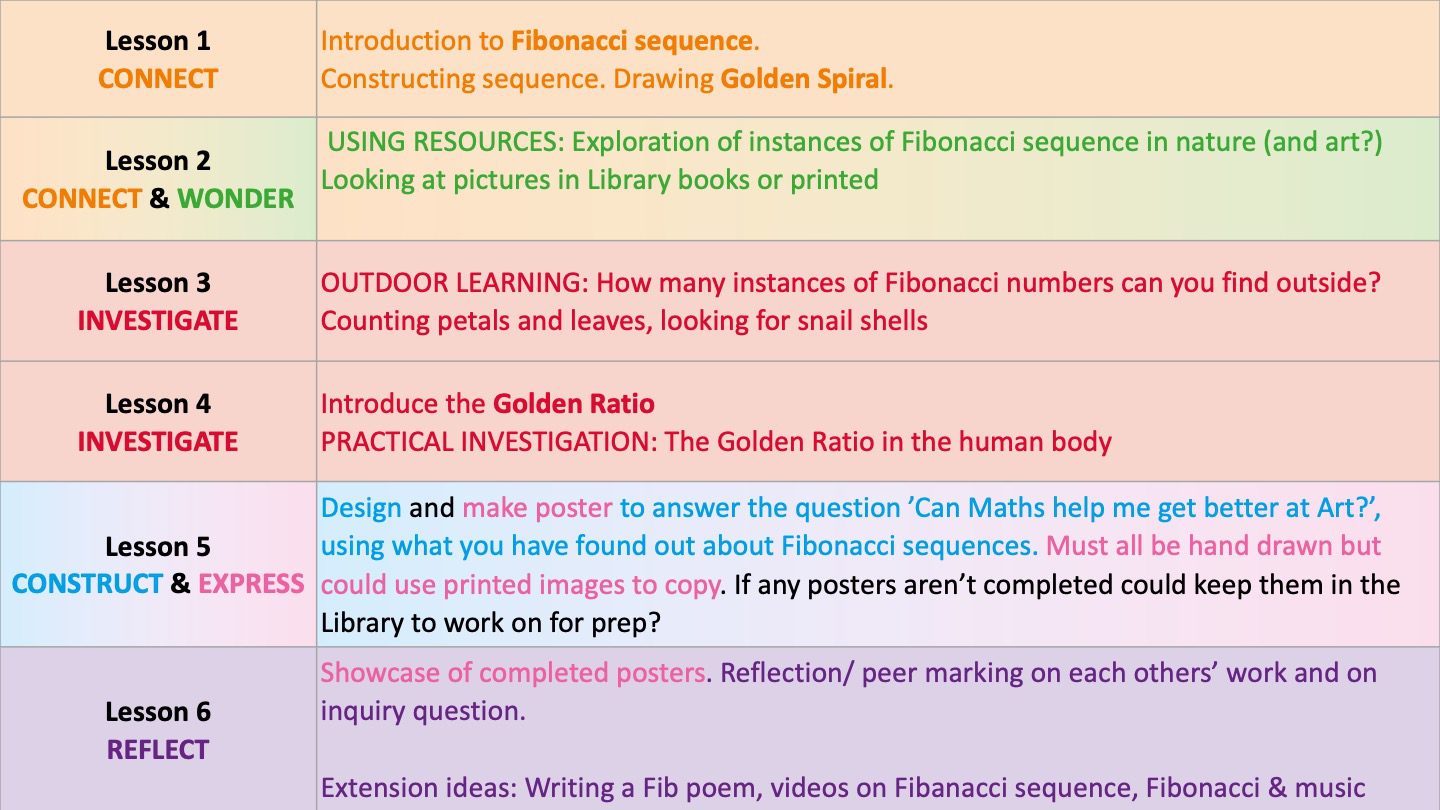
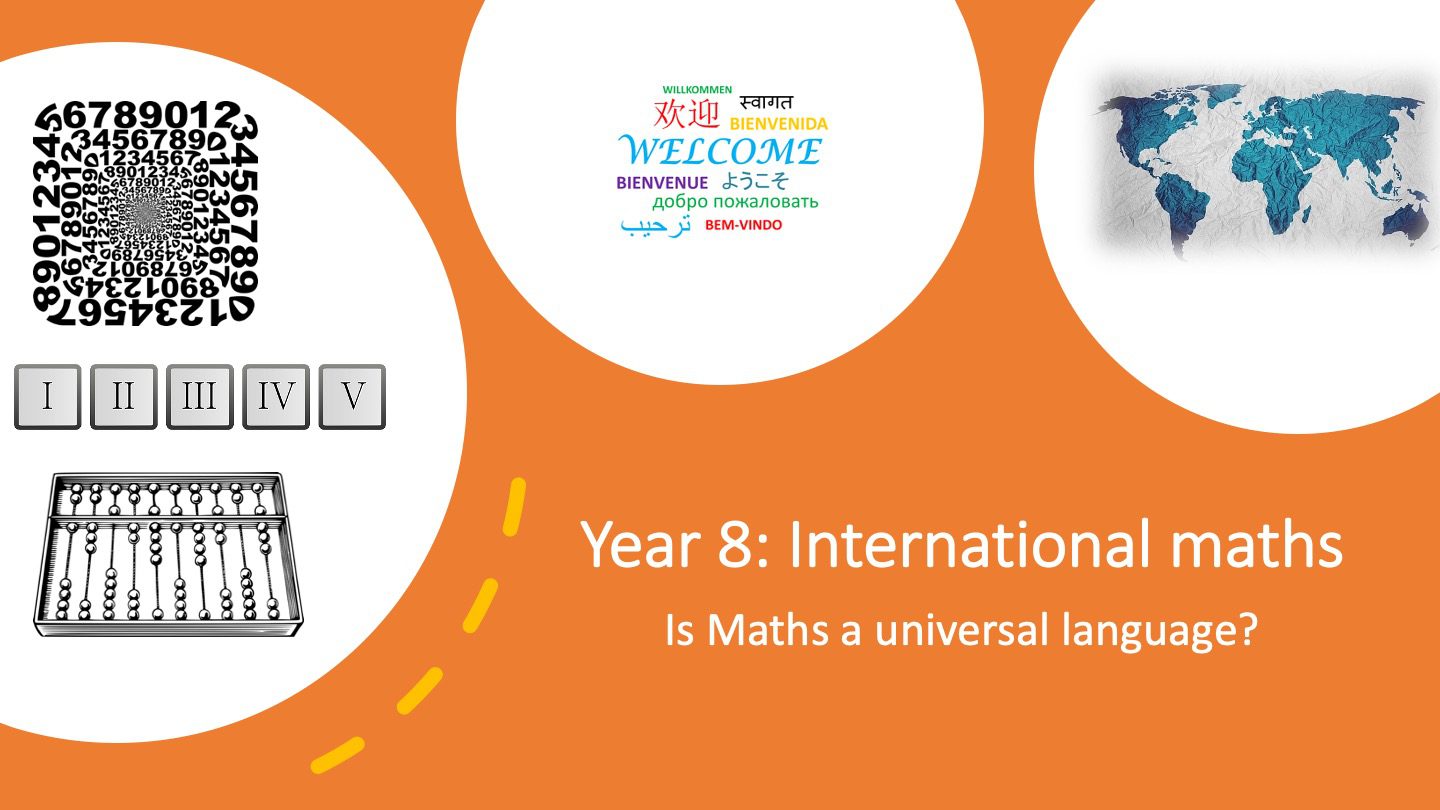
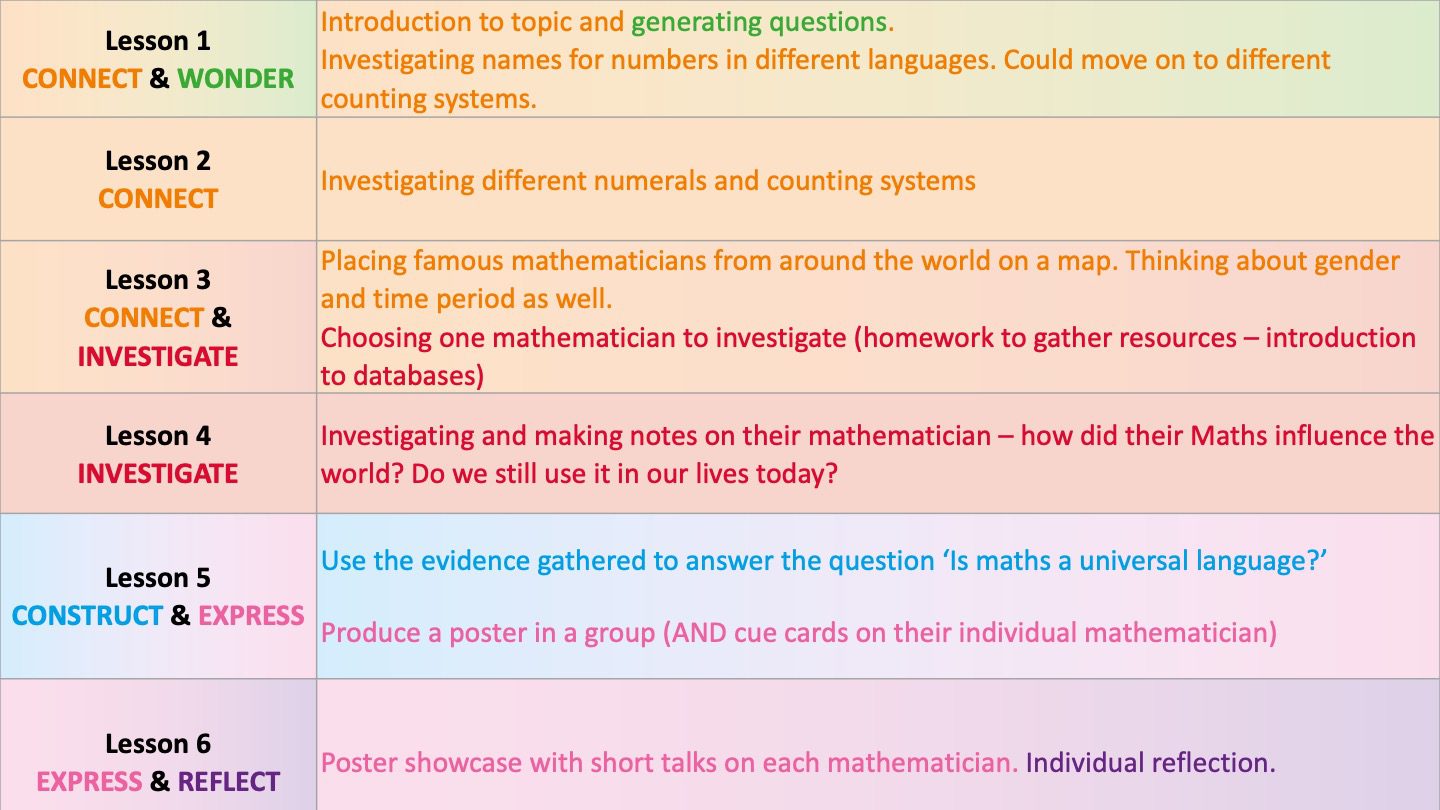
The whole department were enthusiastic about the plans and have decided that the whole of Y7 and 8 should do the inquiries, not just the original teacher’s groups. One of the teachers said his university dissertation was on ethnomathematics and he came into the Library today to lend me a pile of interesting books from his university course and full of lots of ideas – I am hoping he will design the lesson on numerals around the world, with a circus of stations for students to gather ideas. He also recommended the super MacTutor website for resources on the history of maths.
There’s still a lot of work to put in to get these inquiries off the ground, but its such a positive and exciting start in a subject where it can be tricky to persuade teachers that inquiry is a worthwhile approach. It certainly helps that FOSIL is already so embedded in the academic planning tools for our school that departments are actively looking for opportunities to incorporate some form of inquiry into their courses. Darryl worked really hard to advocate for this right from the start and it is a very powerful way to open up new relationships. Developing those relationships further relies on desiging and supporting meaningful inquiry experiences so that departments have the opportunity to experience the power of inquiry in their subjects.
Attachments:
3rd June 2023 at 5:22 pm #80612I’m working on these inquiries over the weekend because the week has been very busy, with Monday’s Bank Holiday, running whole staff INSET on Tuesday (as well as EPQ supervisor training), an assembly promoting our new HPQ course to Y9 (as they make choices for Y10) on Thursday, finishing preparation for a Y7 English inquiry and meeting the Y1 teacher to discuss and develop her fantastic interdisciplinary inquiry on “Who would enjoy a holiday on Guernsey?” – alongside more day-to-day Library things like starting to prepare for the Y6-7 transition days and hosting some internal exams in the Library…
The maths teacher has been working on developing the ‘numerals and counting systems circus’ for Y8 while he has been off-island this week and I’m excited to see what he produces. The books he lent me are:
- Crump, Thomas (1990). The anthropology of numbers. Cambridge: Cambridge University Press.
- Closs, Michael P. (ed.) (1997). Native American Mathematics. Austin: Texas University Press.
- Menninger, K. (1969). Number words and number symbols: A cultural history of numbers. Mineola, NY: Dover.
- Gerdes, Paulus (1999). Geometry from Africa: Mathematical and educational explorations. Washington, DC. The Mathematical Association of America.
- Crossely, J. N. (1987). The emergence of number. Singapore: Word Scientific.
- Powell, Arthur P. & Frankenstein, Marilyn (eds) (1997). Ethnomathematics: Challenging eurocentrism in mathematics education. Albany, NY: State University of New York Press.
Definite overkill for a Y8 inquiry (although they take me back to my own university days – my first degree was in maths) but a very interesting foundation, and they serve as a reminder that this is actually a very important area of study in maths and maths education which doesn’t often appear directly on school curricula. This isn’t just a dinky opportunity to play around after exams – it could really open up the whole area of ethnomathematics for some of these students, and rekindle an interest in maths as they begin to understand the social and cultural importance of the subject.
I also had additional inspiration for the Y7 Fibonacci inquiry because, as a direct result of our INSET presentation, we were contacted on Friday by one of our Biology teachers about developing an ecology based inquiry for all of Y7 for this time next year using the school nature trail. Seredipitously this could link directly to the Y7 Fibonacci inquiry, creating another interdisciplinary opportunity.
Now I just need to get on with planning the details…
4th June 2023 at 11:30 am #80613Thanks, Jenny.
Before I forget, I remember when watching the Apple TV+ Foundation series, which is loosely based on the series by Isaac Asimov, a character, possibly/ probably Harry Seldon, says something along the lines of, maths is never just about the numbers (I still need to track this down in print). This struck me as a powerful essential question (see Framing the Curriculum Through Essential Questions).
Also before I forget, there is something interesting [in Season 1, Episode 9] about history being concerned with the future. As we don’t have access to Apple TV+ anymore, I can’t be more precise, and also still need to track this down in print.
2nd October 2023 at 1:48 pm #81406This is the second time I have been reading about Isaac Asimov this week. I am sure you know his quote about libraries, but just in case, and I know not very relevant to the topic discussed in this thread, here it is:
‘This isn’t just a library. It is a space ship that will take you to the farthest reaches of the Universe, a time machine that will take you to the far past and the far future, a teacher who knows more than any human being, a friend that will amuse you and console you… and most of all, a gateway, to a better and happier and more useful life.’
I am now going to see if I can find the TV series you mention!
-
AuthorPosts
- You must be logged in to reply to this topic.


